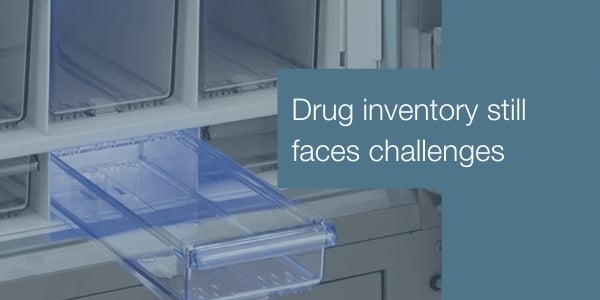The pandemic has put stress on supply chain and inventory in multiple industries, including pharmaceuticals. Drug inventory and supply continue to face challenges, which has led to conservation efforts and in some cases, drug shortages.
During the height of the pandemic, supply disruptions and employee illnesses contributed to drug shortages in 2020. Injectables represented 50% of drug shortages, a figure that was just 39% in 2019 according to a University of Utah Drug Information Service study. Development of the COVID-19 vaccines also contributed to these drug shortages, as the FDA prioritized relevant components toward vaccine production. Injectables such as Cleocin, Depo-Medrol, testosterone cypionate and Depo-Testosterone were impacted due to vaccine production.
This year has seen its fair share of natural disasters and weather-related impacts, which is further hampering an already stressed supply chain. Drug shortages are anticipated to continue. According to a study from the University of Utah Drug Information Service, the top 5 drug class shortages include central nervous system drugs, cardiovascular drugs, antimicrobials, chemotherapy drugs, and hormonal agents. Most of these drug classes require special storage and handling and refrigeration. Pharmacies should consider the type of cold storage used to store these drug types.
Now more than ever, inventory management and control are necessary to help prevent drug shortages. Medical-grade units designed for the storage of vaccines and medications should be used to prevent temperature excursions and protect high value medications and vaccines. The industry-first BD Pyxis™ ES Refrigerator with Helmer Access Technology features precise temperature management and secure locking bins accessed only via the BD Pyxis™ MedStation™ ES. This enhances care by supporting medication safety, clinical workflow efficiency and regulatory compliance while helping to reduce waste and mitigate the risk of diversion of refrigerated medications; all of which are critical when managing drug inventory.
OTHER BLOGS YOU MIGHT BE INTERESTED IN...
- Preventing Drug Shortages During the Pandemic with Integrated, Secure Refrigerated Storage
- COVID-19 Refrigerated Medication Storage Challenges
- Supporting Pharmacy Efficiency and Patient Safety
- BD, Helmer Scientific Collaborate to Introduce First Fully Integrated Refrigerated Automated Dispensing Solution
As the pandemic nears an end, the need for secure, refrigerated drug storage in the hospital pharmacy and at point-of-care remains. Maintaining control and safety in decentralized drug storage is critical for efficient and effective patient care, especially amid supply chain disruptions and drug shortages. To learn more about integrated and secure, single line-item access for your high-risk and high-value refrigerated medications, visit our website.
Source:
"An Update on the State of Drug Shortages," July 2021, PPP Mag





